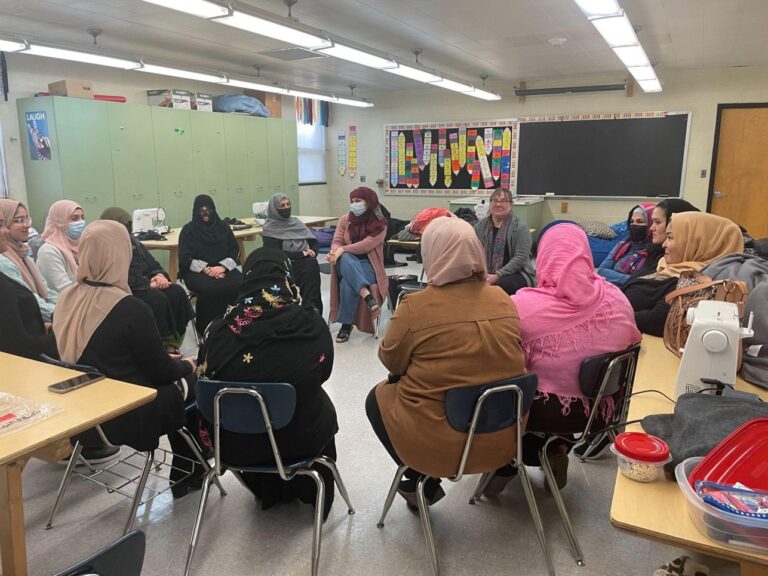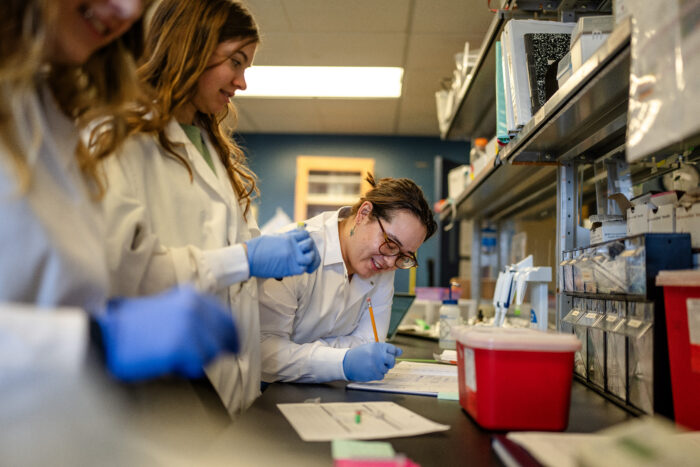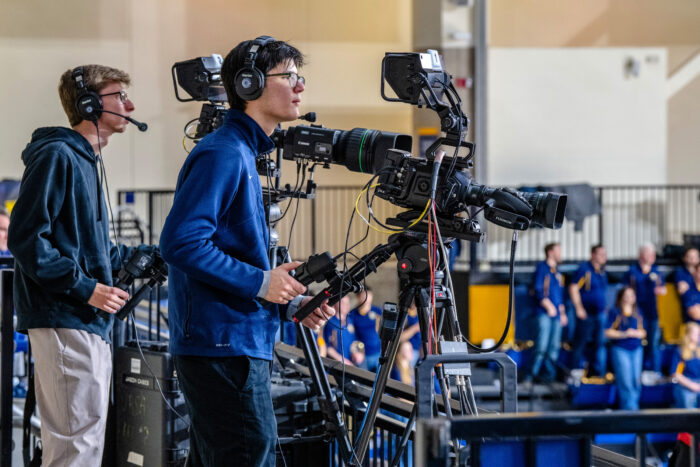Every weekend during the school year, refugee women and children from Afghanistan meet at Hamilton High School on Milwaukee’s south side. For several hours, the women gather to sew, eat lunch and share their experiences in what Dr. Louise Cainkar, professor of social and cultural sciences in the Klingler College of Arts and Sciences, calls Restorative Sewing Circles.
For the women, it’s a form of healing and connection; their children, meanwhile, learn English.
“The sewing circle has provided a way for me to meet other women who speak the same language,” explains Bibi (not her real name), an Afghan refugee. “It makes me feel more at home.”
In many ways, Bibi’s story is similar to other refugees. Before relocating to the United States, she lived a “perfect life” in Afghanistan, surrounded by extended family, all happy and gainfully employed. She was enjoying life in the only country she had ever called home.
Everything quickly changed for Bibi in 2021. The news came that the United States was pulling its troops out of Afghanistan, ending a war spanning two decades.
At risk due to her position on the war, Bibi sought refuge a world away.
‘The best part of living in the U.S. is that I’m safe’
Cainkar has been working on Afghan refugee settlement since December 2021, funded by Welcome.US, Marquette’s Institute for Women’s Leadership and Prince Harry and Meghan Markle’s Archewell Foundation Welcome Project Grant.
“It is about empowering these women, as people new to a strange land, to be effective mothers, wives and future citizens,” says Cainkar, who is also the director of peace studies in the college. “It is about giving them a safe space where they can speak about their worries and their joys and providing support for an activity which gives them a sense of achievement.”
Supported by a Marquette Way Klingler Fellowship, Cainkar designed the Restorative Sewing Circles in partnership with the Milwaukee Muslim Women’s Coalition. It is both a practical mental health outreach program and a research project looking into the resettlement of Afghans in Milwaukee and Chicago.
Cainkar says the Restorative Sewing Circles provide a space for these women to express their issues and needs in a culturally compatible setting.
“The goal is to enhance their mental health, cultural integration and sense of community,” Cainkar says. “They have suffered much pain and loss from the war.”
The Afghan Women Restorative Project is part of Cainkar’s overall Afghan Project work. In a research project , Cainkar conducted multiple interviews with the directors of five Arab Muslim American agencies — mostly women-run — that were involved in Afghan refugee resettlement. A portion of her work analyzes the Biden administration’s new public and private refugee sponsorship model.
“What I have always found bewildering is the U.S. media’s focus on ‘saving Afghan women,’ yet the U.S. resettlement system has been largely patriarchal,” Cainkar explains. “We now have a national investment in the kinds of innovative ideas and projects that are produced when women are in the leadership.”
When Bibi was accepted for U.S. transport out of Afghanistan, she grew optimistic and excited for the possibilities ahead.
“I was so excited that my family and I were getting to go to another country,” Bibi says with a smile.
Thirteen members of her family now live in North America; three are with her in U.S. and 10 live in Canada.
“The best part of living in the U.S. is that I’m safe.”
“One of the greatest lessons that I’ve learned from being around refugee women is that we must oppose war wherever we find it,” Cainkar says. “That we must alter the way members of our society think about using war and weapons as means to solve conflicts. Refugees are human beings who are the symptoms of war, corruption and global inequality.”



